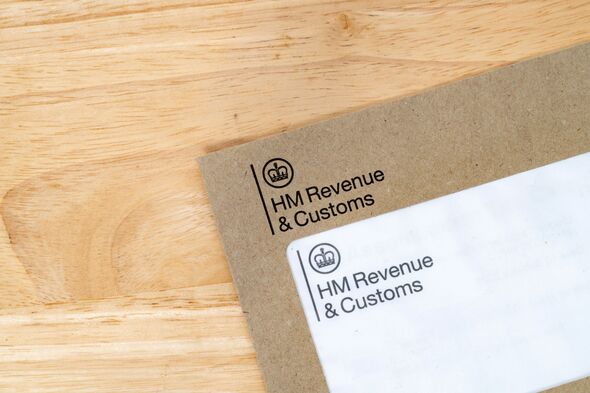Business
HMRC Alerts Savers with £10,000 to Prepare for Tax Bills

Individuals with savings of just £10,000 may soon receive unexpected tax bills from HM Revenue and Customs (HMRC) this year. The UK’s tax authority has begun sending letters as part of its efforts to ensure compliance in the new tax year 2025-26. These letters inform taxpayers that they may need to register for self-assessment or pay additional taxes based on interest accrued from their savings accounts.
As financial institutions report interest earned on savings to HMRC, those exceeding specific thresholds may find themselves liable for taxes. Interest on savings is automatically tracked, with banks and building societies responsible for reporting this information, unless the funds are held in a Cash ISA, which is exempt from taxation.
The current rules regarding the Personal Savings Allowance allow individuals to earn up to £1,000 in interest annually without incurring taxes, applicable to those with earnings below £50,270. For individuals whose income exceeds this threshold, the allowance is reduced to £500, and those earning £125,000 or more receive no allowance at all.
To illustrate, if an individual places £10,000 in a standard savings account with a 5% interest rate, they would earn £500 in interest over a year. For those earning more than £50,270, 40% tax would apply to any interest exceeding their allowance. In this case, the entire allowance would be consumed, resulting in a tax liability.
It is important to note that even modest interest rates could lead to tax implications. For example, £10,000 at a 1% interest rate could trigger a tax bill if combined with additional interest from other accounts. If savings exceed £21,000 at a 5% interest rate, the generated interest would surpass the £1,000 allowance, resulting in additional tax owed.
Multiple income sources contribute to the Personal Savings Allowance, including:
– Bank and building society accounts
– Savings and credit union accounts
– Unit trusts, investment trusts, and open-ended investment companies
– Peer-to-peer lending
– Trust funds
– Payment protection insurance (PPI)
– Government or company bonds
– Life annuity payments
– Some life insurance contracts
According to HMRC, if individuals exceed their allowance, they will be taxed on the interest over this limit at their usual income tax rate. If they are employed or receive a pension, HMRC will adjust their tax code to account for the additional tax automatically. The tax code is determined by estimating interest income based on the previous year’s earnings.
As this new tax year progresses, individuals with savings should be aware of their obligations and take necessary steps to avoid unexpected tax bills. Keeping informed about savings interest and potential liabilities can help individuals manage their finances more effectively.
-

 Health3 months ago
Health3 months agoNeurologist Warns Excessive Use of Supplements Can Harm Brain
-

 Health3 months ago
Health3 months agoFiona Phillips’ Husband Shares Heartfelt Update on Her Alzheimer’s Journey
-

 Science2 months ago
Science2 months agoBrian Cox Addresses Claims of Alien Probe in 3I/ATLAS Discovery
-

 Science2 months ago
Science2 months agoNASA Investigates Unusual Comet 3I/ATLAS; New Findings Emerge
-

 Science1 month ago
Science1 month agoScientists Examine 3I/ATLAS: Alien Artifact or Cosmic Oddity?
-

 Entertainment5 months ago
Entertainment5 months agoKerry Katona Discusses Future Baby Plans and Brian McFadden’s Wedding
-

 Science1 month ago
Science1 month agoNASA Investigates Speedy Object 3I/ATLAS, Sparking Speculation
-

 Entertainment4 months ago
Entertainment4 months agoEmmerdale Faces Tension as Dylan and April’s Lives Hang in the Balance
-

 World3 months ago
World3 months agoCole Palmer’s Cryptic Message to Kobbie Mainoo Following Loan Talks
-

 Science1 month ago
Science1 month agoNASA Scientists Explore Origins of 3I/ATLAS, a Fast-Moving Visitor
-

 Entertainment2 months ago
Entertainment2 months agoLewis Cope Addresses Accusations of Dance Training Advantage
-

 Entertainment3 months ago
Entertainment3 months agoMajor Cast Changes at Coronation Street: Exits and Returns in 2025









